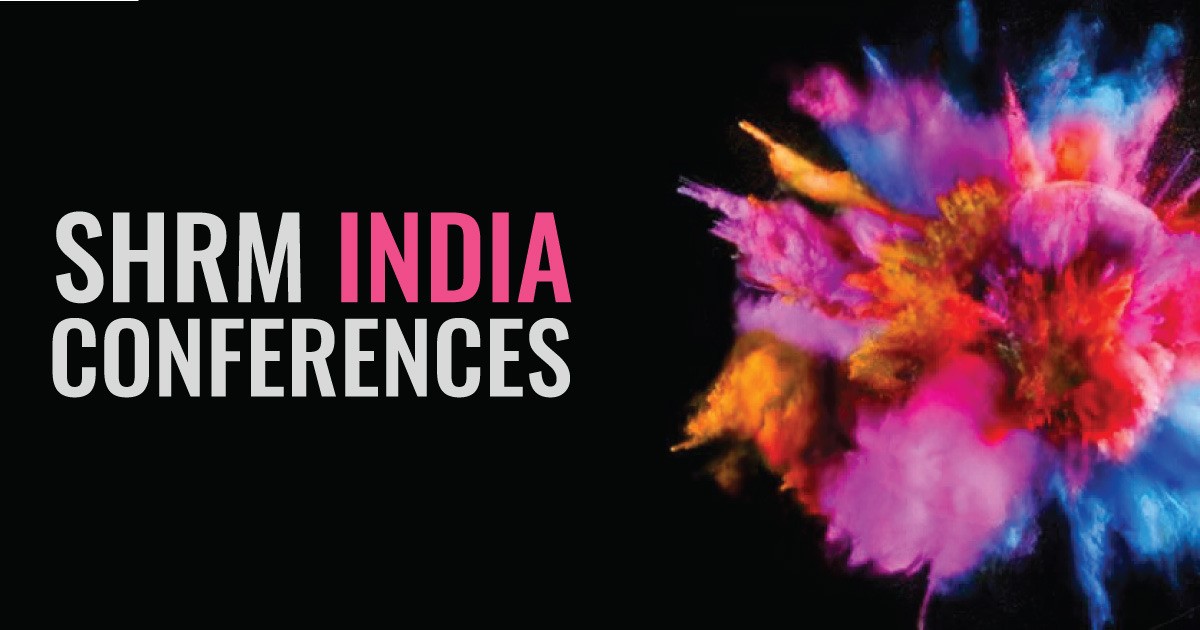by Ishtiak Taher, SHRM-SCP
In today’s interconnected world, attending an international professional conference has become a gateway to global opportunities and knowledge exchange. As professionals seek to expand their horizons and stay at the forefront of their industries, international conferences have emerged as invaluable platforms for growth and networking. From cultivating a diverse professional network to gaining fresh insights and enhancing one’s skill set, international conferences offer a host of advantages that extend well beyond the conference room.
SHRM India has recently hosted its annual flagship event “SHRM India Annual Conference & Exposition 2023” (SHRMIAC23) at the Taj Palace Hotel in New Delhi from October 12 to 13, 2023. SHRM India is the Indian branch of the Society for Human Resource Management (SHRM), an HR association and global HR certification body based in the United States. This year, SHRM is celebrating its 75th anniversary. SHRM India also hosts a two-day HRTech conference in Hyderabad each year, typically around May.
I had the privilege of attending this significant event in New Delhi for the sixth consecutive occasion, which also included the 2020 and 2021 conferences conducted online due to the COVID-19 pandemic. From my perspective, here are ten compelling reasons why professionals from Bangladesh should consider participating in these conferences:
.
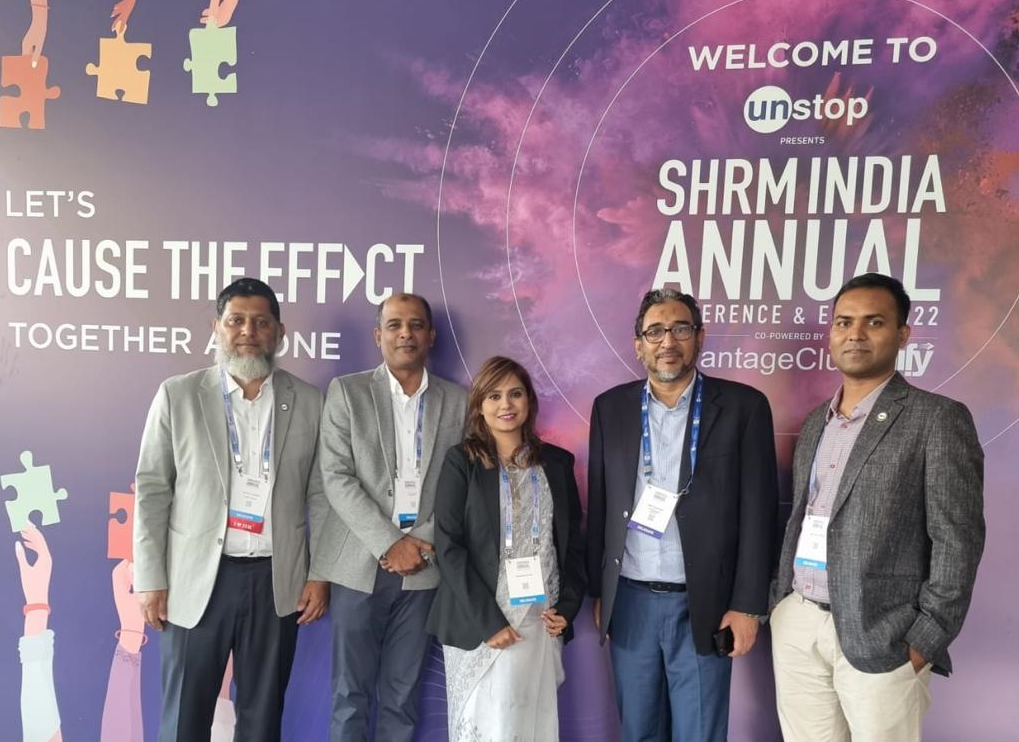
.
1. Similar Workplace Challenges: There are lots of similarities between the social and workplace culture of India and that of Bangladesh. Therefore, the workplace challenges faced there are quite similar to those we experience here. This is a great platform to exchange views with a huge number of HR professionals who deal with these challenges day in day out and also learn from speakers involved in 70+ highly engaging sessions throughout the conference.
2. Speakers of Global Stature: Dave Ulrich, Marc Effron, Ram Charan, Shiv Khera, Josh Bersin etc. are some of the globally renowned thought leaders who delivered keynote speeches in previous SHRM India conferences. These renowned leaders offer a wealth of experience and expertise and personal life stories. Attending their speeches provides you with access to their valuable insights, strategies, and lessons learned from their successful initiatives and also broaden your horizons and help you see problems from different angles. Sometimes you may also get the opportunity to directly interact with them in the networking lounge at the expo area of the conference venue.
.
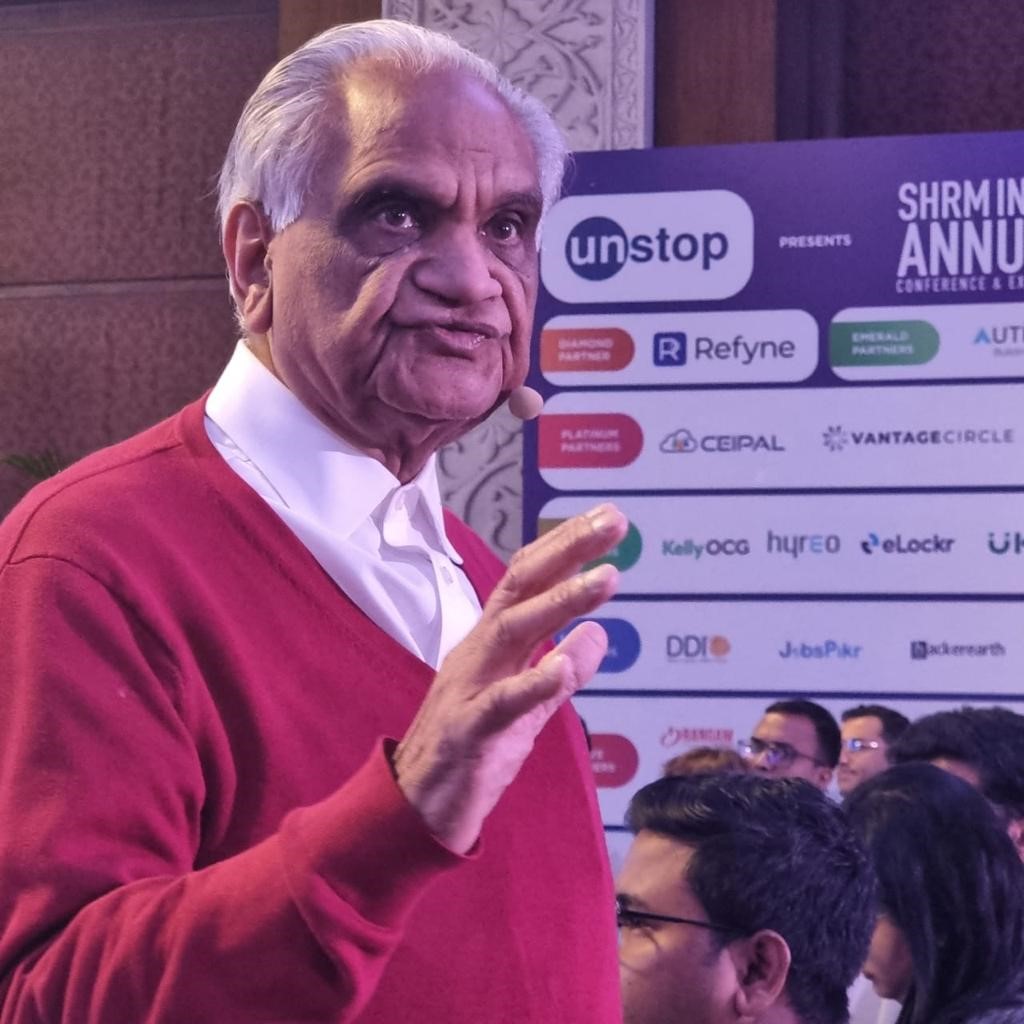
.
3. Exposure to Complex Challenges: As India has 1.4 billion people, their companies are also very large in size. For example, TATA group itself directly employs close to a million employees in India. Hence the HR challenges they face are also very complex and bigger in scale. There is a large number of Indian companies that operate in many countries across the world. Besides, most of the MNCs operating in this region have their Regional CHRO or HR Director based in India. As a result, these HR and other leaders handle challenges not limited to India but also oversee operations in other countries within regions such as South Asia, MENA, and APAC.
One CHRO was sharing her insight about how they dealt with hyperinflation (33% inflation) in a North-African country, compensation wise, and ensured 100% retention of the employees working for them in that country.
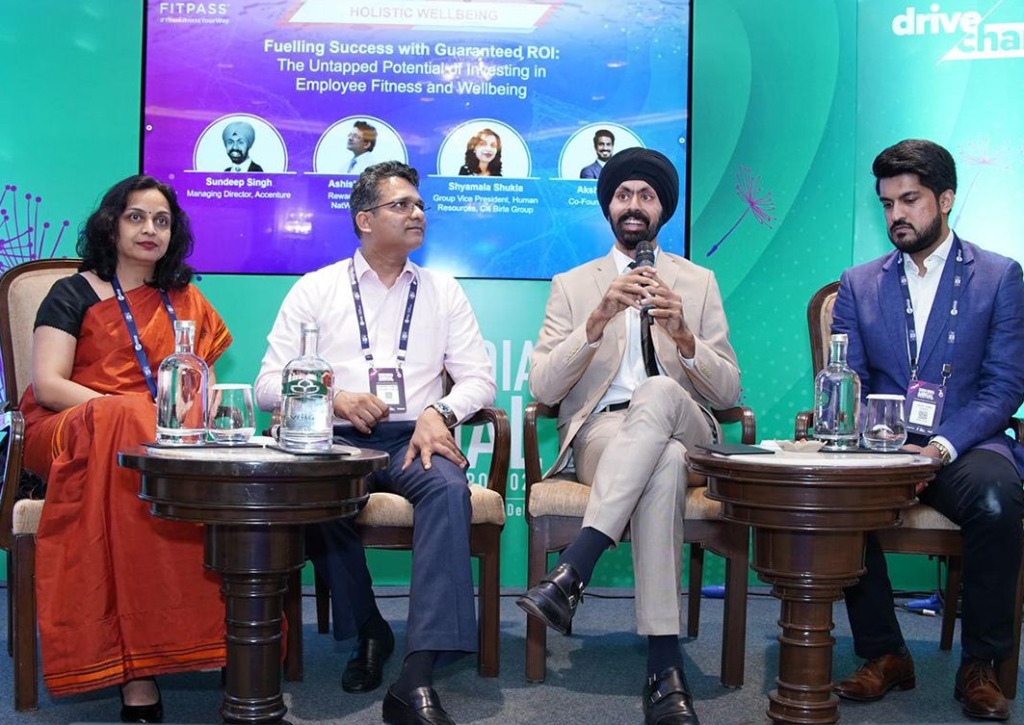
4. Adoption of Technology in Workplace: With six million software engineers in India, Indian companies are highly advanced in adopting technology at workplace. There is also an exposition that takes place every year at the conference venue where some of the leading HR solution providers display a multitude of innovative and state of the art HR Tech products and services. In addition, speakers also share their experience about adopting technology in workplace and how it significantly enhanced productivity in the entire business.
For example, one CHRO was speaking about an interesting technology they use to assess the effectiveness of their employer brand. This was quite interesting and a great learning opportunity for me. Besides, this year the big tech issue was Generative AI. There were 5/6 sessions in this conference on GenAI and its likely impact on the future of work.
5. Innovative HR Practices: Some of the practices we only read about here in Bangladesh, but they actually work extensively on those issues in India. One such areas is DEI&B (Diversity, Equity, Inclusion and Belonging). Indian companies’ interventions on diversity & equity are extensive. And these are all actions integrated in to the business not just “nice to do” management fads.
You may be familiar with ZOHO, a Tamil Nadu-based SAAS (Software as a Service) IT company. During the conference, one of the speakers discussed how ZOHO, an Indian company, competes with industry giants like Google, Apple, Microsoft, and Amazon by employing highly innovative approaches to recruit and nurture a diverse pool of talent from South India. They achieve this by establishing a regional talent development institution known as ZOHO School. This institution identifies and develop individuals with potential from rural areas through a specialized program. Upon successful completion of this program, these individuals are onboarded as employees in relevant positions within ZOHO. Notably, ZOHO does not ask for typical formal educational degrees that other mainstream employers often require.
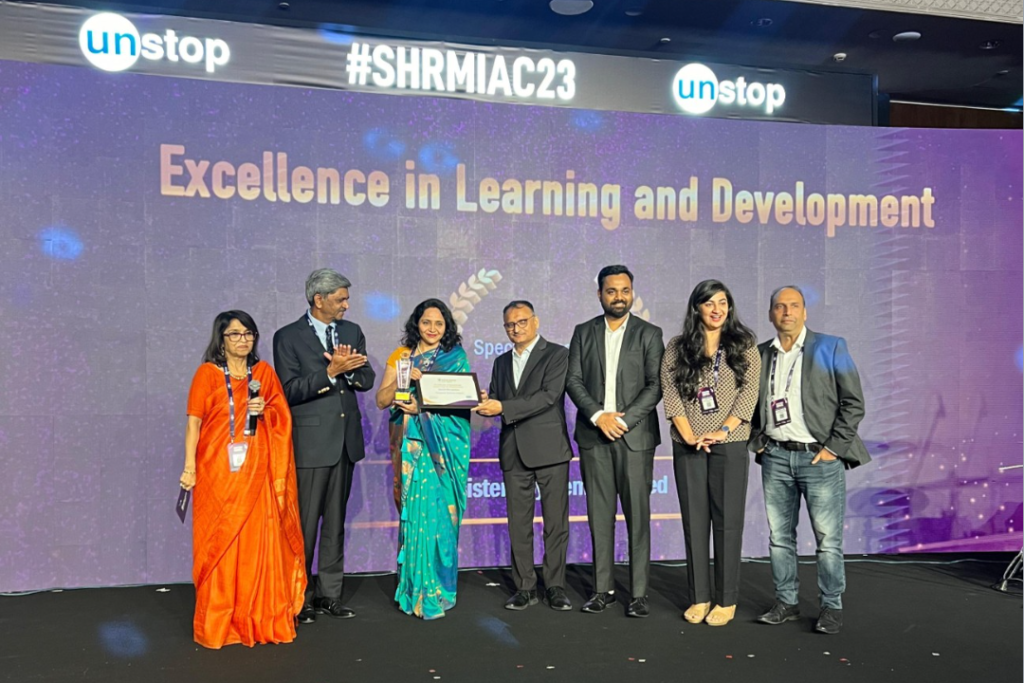
6. Professional Networking Opportunity: You can experience great networking opportunities with all kinds of professionals in these conferences. With 4,500+ participants (from across the world), out of which 950+ are CXOs, this is a goldmine for professional networking opportunities. These conferences are an ideal place to connect with peers, potential mentors, partners, and clients. You can expand your professional network and build relationships that can lead to meaningful collaborations and new opportunities for you.
In the 2019 conference in New Delhi, I met with someone from Nepal. He then invited me to conduct an in-person SHRM Certification Preparatory Course in Nepal in November 2019 just before the COVID pandemic hit the entire world. Each year I connect with potential partners and engage in collaborative efforts across various domains.
7. Vision for Future Workplace: You come across ideas that you do not typically hear in similar professional events in Bangladesh. For example, near the end of this year’s conference, one of the speakers was talking about Candidate Experience (CX). In his own words:
“When you place an order for food using a food delivery app, you have real-time visibility into the various stages of your order. For instance, you can track when your food is being prepared, when the delivery person has picked it up, and when the delivery is enroute to your home, with an estimated arrival time of 10 minutes, and so on.” He then posed a thought-provoking question, “Why can’t the recruitment process offer a similar level of transparency? Why do job applicants often find themselves in the dark regarding the status of their job applications?”
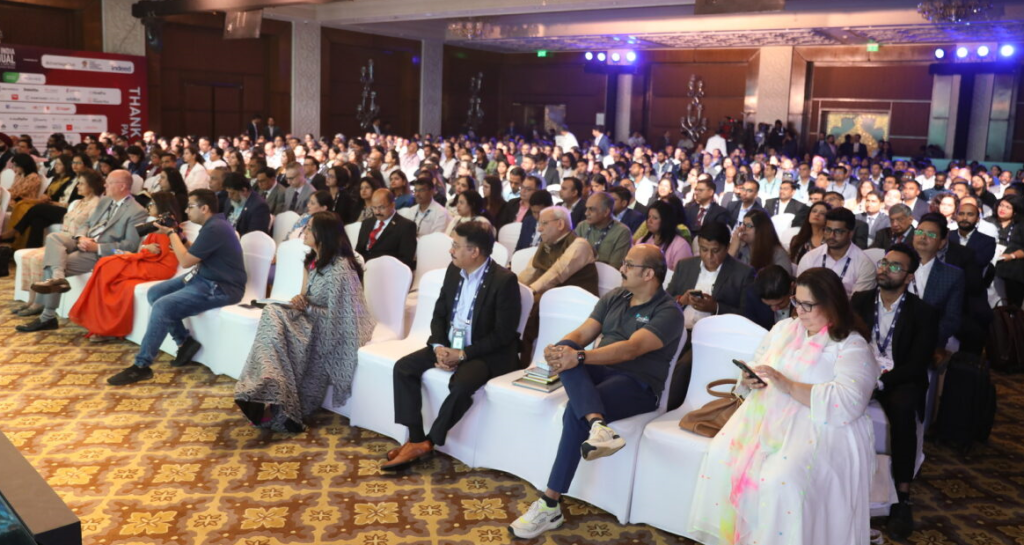
8. Not Only About HR: These conferences cover more than just HR matters. Speakers delve into topics ranging from their personal life stories to economy, culture, CSR, technology, and various other social and global issues. As a result, you won’t find yourself feeling fatigued by two days of continuous bombardment on HR issues alone.
I still vividly recall the 2018 conference session featuring Sonam Wangchuk, the real-life figure who was the inspiration behind actor Amir Khan’s iconic character Phungshuk Wangdu (aka Ranchoddas Chanchad) in the film “Three Idiots”. Sonam conducted his session virtually, seated on the floor of the New Delhi Airport, as his flight was delayed which prevented him from reaching the conference venue on time. During his talk, he shared insights into the early struggles in his life and the driving force that led him to return to his native Ladakh. There, he established the Students’ Educational and Cultural Movement of Ladakh (SEMCOL) and embarked on a mission to reform the government school system for the hill children of Ladakh. Simultaneously, the SECMOL also transformed into an unconventional school, serving as a hub for practical, environmental, social, and traditional knowledge, values, and skills. Most notably, his presentation was marked by his remarkable humility as a human being.
Then in the 2022 conference, Poorna Malavath, an underprivileged girl from a remote corner of South India, recounted her remarkable expedition to Mount Everest when she was just 13 years old. And what is a conference in India without any talk about Cricket? Star Indian cricketer Ajinkya Rahane reflected on his path to becoming a professional cricketer and his insights into leadership.
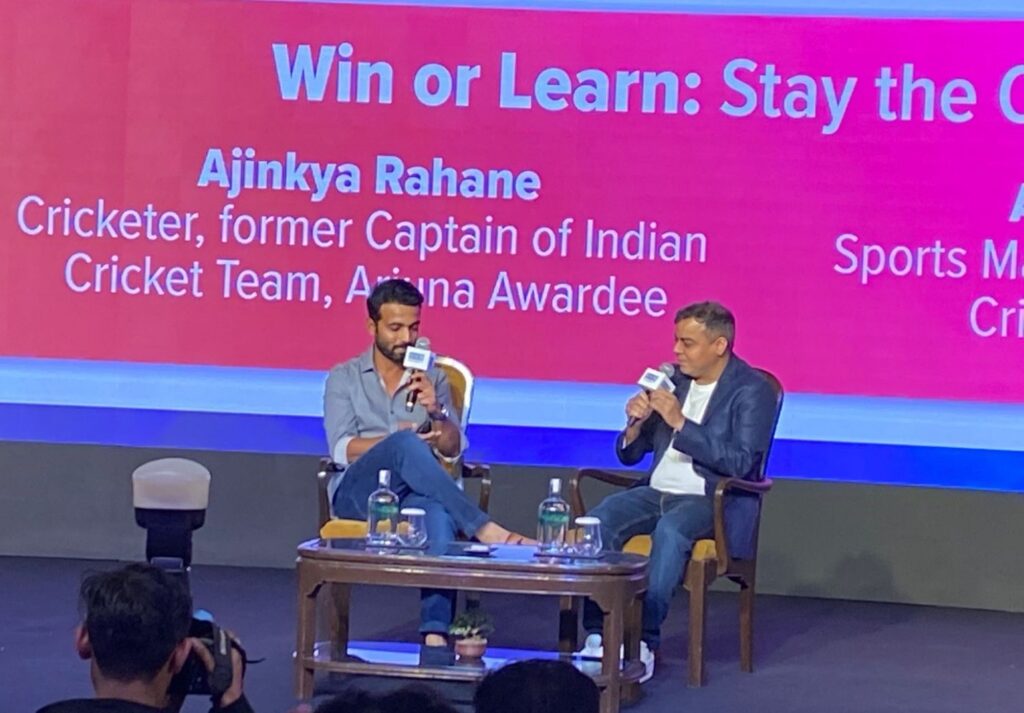
9. Affordable Cost: The expenses associated with participating in SHRM India conferences are notably more budget-friendly when compared to the costs of attending similar international conferences held overseas. With some prudent financial planning, most mid to senior-level professionals here can likely cover these expenses on their own. In fact, it can be a more economical investment compared to the routine purchase of high-end smartphones every two years, a practice many of us follow. However, I also strongly advocate for local organizations to consider sponsoring their HR and other functional leaders to attend these conferences. This presents an excellent opportunity to acquire substantial learning value for money.
10. Recertification Credit for SHRM Certified Professionals: Besides the learning experience, if you are a SHRM Certified professional, by attending these conferences you can also earn much coveted PDCs (Professional Development Credit) towards your next SHRM-CP or SHRM-SCP recertification.
I look forward to a growing presence of professionals and entrepreneurs from Bangladesh in upcoming editions of SHRM India conferences.
